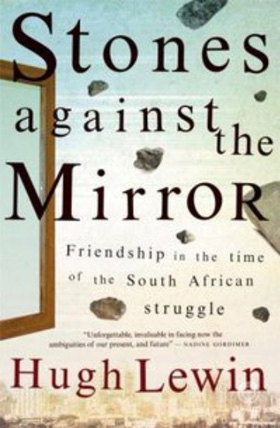Facing the Past: A politics of betrayal

Last weekend - 10 to 12 June - saw the Wits Philosophy Department and Centre for Ethics host an interdisciplinary conference, Living with the Past, which asked hard questions about South Africa's much-vaunted, and internationally replicated, project of Truth and Reconciliation during the 1990s.
With many of its concerns echoing those raised in June last year at a forum organised by Professor Njabulo Ndebele - where four young South African writers were brought into dialogue with the Chilean playwright Ariel Dorfman - it signals a widespread sense that South Africa's official process of redress and amnesty was brought to an end too soon. This forced closure, it was suggested by several participants in Johannesburg, may have resulted from the well-meaning efforts of those like Archbishop Desmond Tutu to shepherd individual testimonies towards a Christian ideal of unconditional forgiveness; but it has dovetailed alarmingly with the kind of glib, business-minded amnesia which suggests that South Africans of all kinds just need to 'move on'.
The result, a decade and more later, is a feeling that our celebrated process of working through the gross human rights violations of apartheid was in fact 'half-hearted' (to use a phrase from the visiting philosopher Lionel McPherson of Tufts University), or as Ndebele put it in an even stronger term, 'suspect'.
Drawing links between private clinical practice and public discourse, the psychologist Clinton van der Walt spoke on 'Performed Forgiveness and the South African TRC', while, in a paper on 'Remembering and Filming the Rwandan Genocide', Ward Jones (Rhodes University) offered a comparative perspective, and traced the different forms of commemoration produced for (and by) divergent local and global audiences. Madeleine Fullard, Head of the Missing Persons Task Team in the National Prosecuting Authority, discussed the ethical difficulties which resulted when forensic or genetic evidence threatened to undermine cherished narratives held by the families of victims of political violence. Describing how one NPA investigation revealed how three highly trained MK operatives had lost their lives in a skirmish with rookie SADF conscripts, she explored the difficulties of deciding if and how such forensically derived 'truths' should be broached to a family who had no desire to hear them.
My main interest in attending the proceedings was to hear Hugh Lewin, author of the recent Stones against the Mirror (2011). In this delicate and meditative memoir, he charts the process by which he came to resume a friendship with Adrian Leftwich, someone who had been his best man and virtually a twin brother, but who turned state witness in 1964 and put Lewin behind bars for seven years. The book, subtitled 'Friendship in the Time of the South African Stuggle', joins several other accounts of the ill-fated African Resistance Movement (ARM). It was an organisation formed largely of liberals-become-radicals who sabotaged pylons and other infrastructural targets in an effort to send a message, post-Sharpeville, that serious, principled resistance was still alive in white South Africa, but which ended in tragedy following the actions of the 'station bomber', John Harris.
As part of a larger enquiry into (literary) non-fiction in South Africa, I am exploring the different modes and genres in which this compromised, messy and contested narrative has been written of, or written up. It is dealt with in several political memoirs and 'jail diaries' from the time: Lewin's own Bandiet (1974), Albie Sachs' Stephanie on Trial (1968), as well as Eddie Daniels' There and Back (1998). It has been fictionalised in ways that are both thinly veiled, as in CJ Driver's Elegy for a Revolutionary (1969), and more creative in their adaptation - Nadine Gordimer's The Late Bourgeois World (1966) and Athol Fugard's Orestes (1978).
In a 2002 edition of Granta magazine, Leftwich himself offered a confession which took him 15 years to write - as much 'an essay in the personal politics of fear as it is in the politics of failure and betrayal' - and which was, intriguingly, judged variously as sincere and powerful, inadequate and evasive, by the different individuals affected by his actions.
Lewin's memoir itself suggests this pull towards multivalence and blurred genres: it is a string of short prose pieces, poems, quoted letters and emails, epigraphs and self-conscious meditations on the very process of telling stories. In the epilogue, he quotes some advice given to him during a period of writer's block by fellow bandiet Harold 'Jock' Strachan. It is a passage which, in setting the act of literary shaping against mere 'archival truth', asks us to keep asking the most difficult questions about the forms which officially sanctioned reconciliation takes in contemporary South Africa:
You don't in fact have any material other than your own recollections, and what you're suffering from is a lack of confidence; so why not get in there, my china... Chisel at the form as does a poet, in tranquillity, get the utmost compression from the fewest words, make technique and style as important as content?
The risk otherwise is of falling into archival truth. Nothing wrong with that, of course; it's an honourable moral compulsion, but it's not what literature is made of. I mean, nobody wants to read it. Literature is not a court record.
All power to your pen, comrade. Throw caution to the winds! I mean what are you afraid of? Disrepute? You already have a criminal record. (187) - hedley.twidle@uct.ac.za